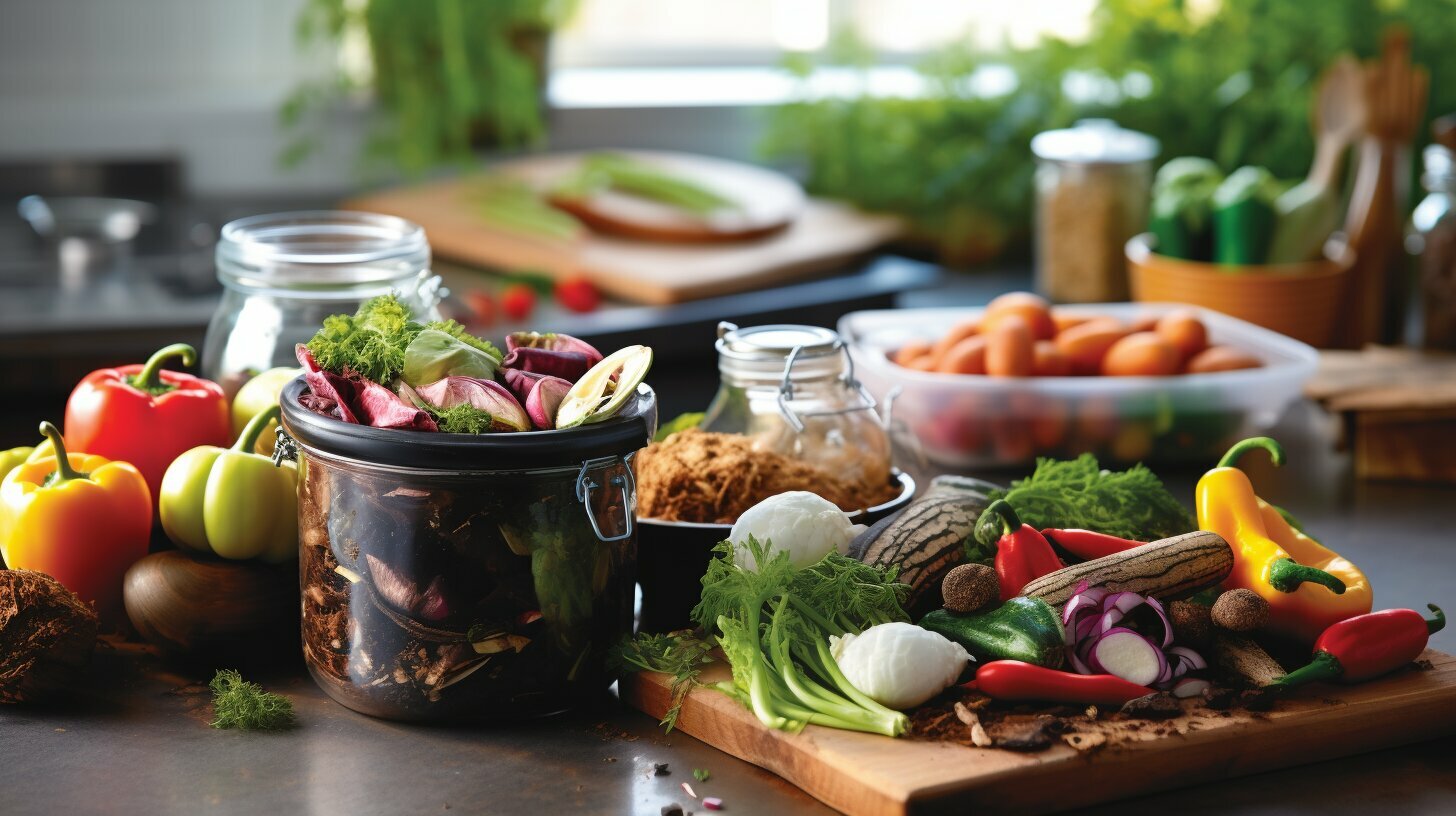As an urban dweller, I always wanted to do my part in reducing my carbon footprint and contributing to a sustainable environment. However, with limited space and no access to a backyard or garden, composting seemed like a challenge. That’s when I discovered that composting in an apartment is not only possible but also incredibly rewarding!
Composting in an apartment is a simple and effective way to transform kitchen waste into nutrient-rich soil that can be used for container gardening or indoor plants. It’s a cost-effective solution that helps reduce landfill waste and promotes sustainable living in a limited space.
Key Takeaways:
- Composting in an apartment is possible and easy.
- Apartment composting helps reduce landfill waste.
- Composting produces nutrient-rich soil for container gardening or indoor plants.
Why Compost in an Apartment?
Living in an apartment doesn’t mean you have to give up on composting. In fact, apartment composting is more important than ever. With limited outdoor space and a focus on sustainable urban living, composting in an apartment can make a big impact on reducing waste sent to landfills and creating nourishing soil for indoor plants.
When you compost in your apartment, you’re contributing to a greener future by transforming kitchen waste into nutrient-rich soil. Plus, composting can be a cost-effective solution for apartment dwellers who don’t want to spend money on commercial soil or fertilizer.
Don’t let the small space discourage you, apartment composting is easy and rewarding. With a few simple steps, you can turn your kitchen waste into a valuable resource and do your part to promote sustainable living in the city.
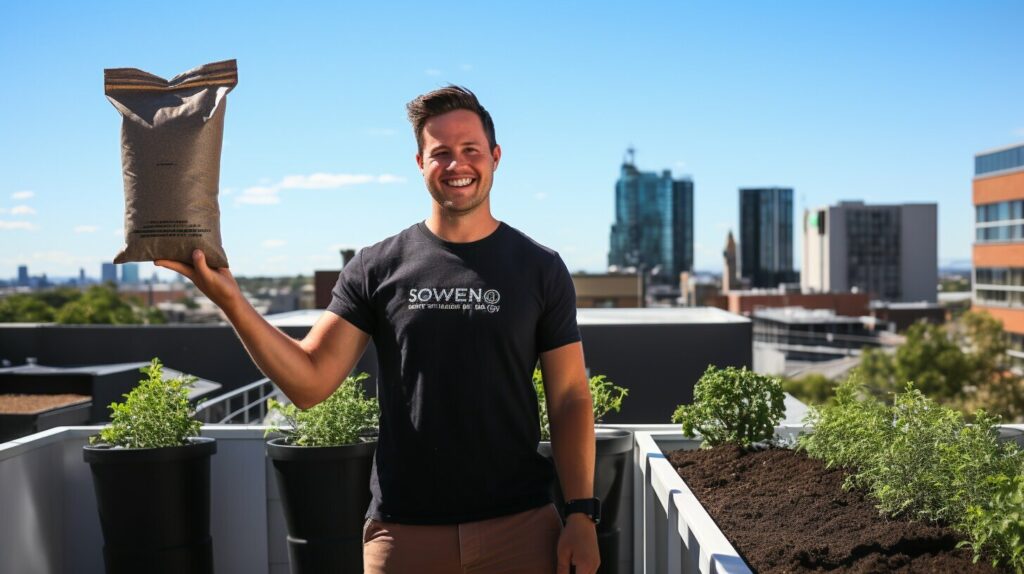
Choosing the Right Composting Method for Apartments
When it comes to composting in an apartment, there are several methods to choose from. The ideal method depends on your living situation, the amount of space you have, and your personal preferences. Here are three popular methods:
| Vermicomposting | Bokashi Composting | Indoor Composting Systems |
|---|---|---|
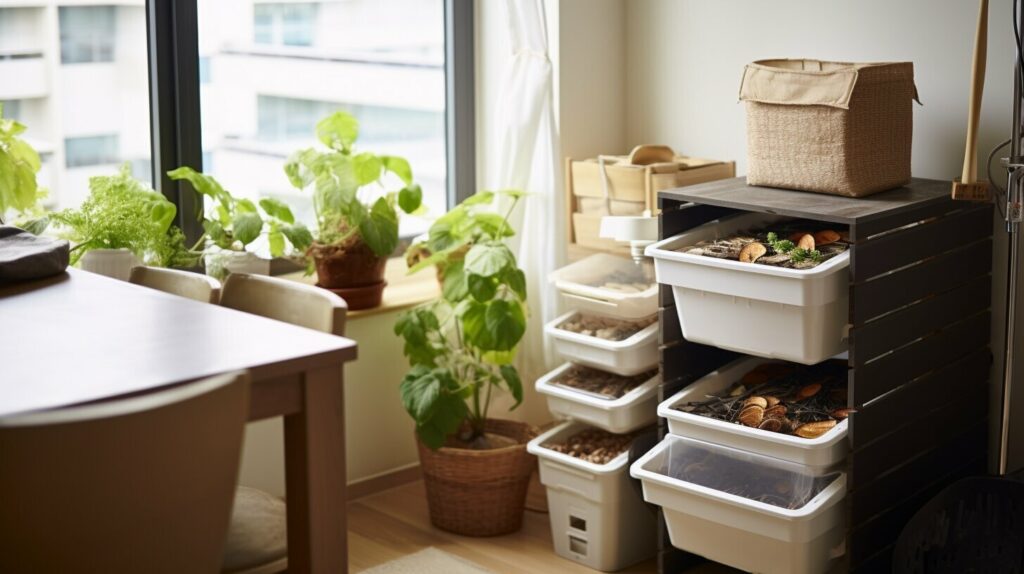 |
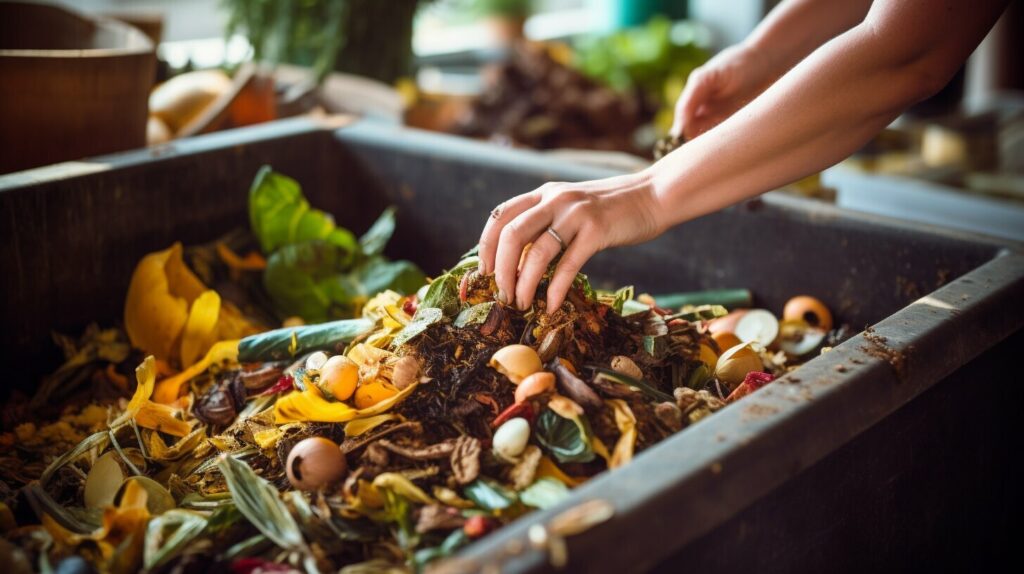 |
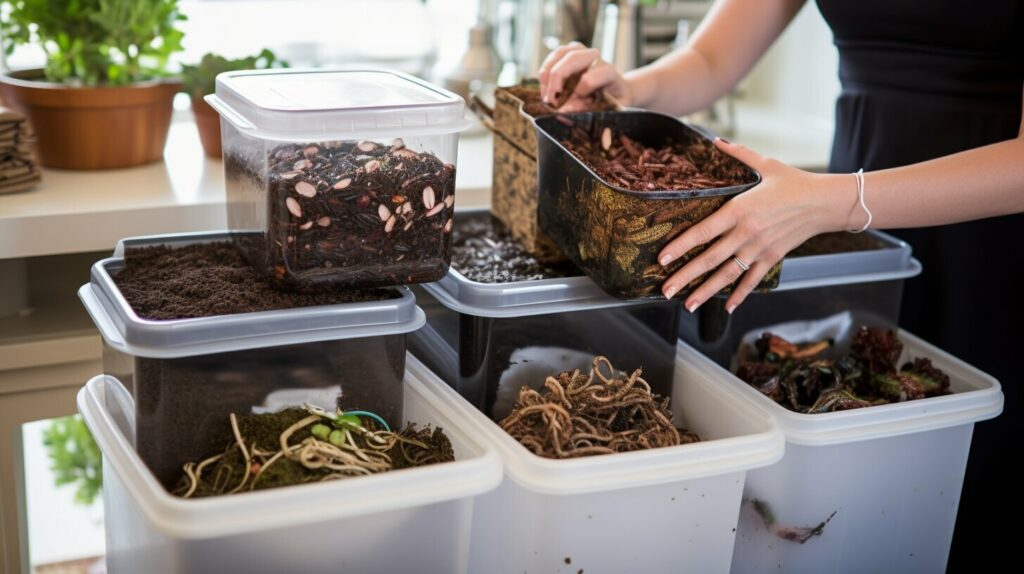 |
| Vermicomposting relies on worms to break down organic matter, making it a great option for small spaces. All you need is a container, bedding material, and some redworms to get started. The worms digest the kitchen scraps and leave behind nutrient-rich castings that can be used as soil. | Bokashi composting uses a special mix of microorganisms to ferment organic waste in an airtight container, creating a nutrient-rich liquid that can be used to fertilize plants. This method is ideal for people who don’t have access to outdoor space or who prefer a low-maintenance composting method. | Indoor composting systems use a combination of heat, moisture, and airflow to break down organic matter. These systems can be as simple as a DIY bucket or as complex as a high-tech machine with sensors and filters. They are great for those who want a hands-off approach to composting. |
Whichever method you choose, remember to regularly monitor and maintain your compost to ensure it stays healthy and produces nutrient-rich soil.
Setting Up Your Apartment Composting System
Once you have decided to start composting in your apartment, the next step is to set up your composting system. Here are some simple steps to follow:
- Choose the Right Container: You can use a plastic bin, a ceramic crock, or a metal container with a lid. Make sure it has enough room to hold your compost and fits in your space.
- Find a Suitable Location: Look for a spot in your apartment with good air circulation and away from direct sunlight. You can keep it in a closet, under the sink, or in a corner of your kitchen.
- Add Composting Materials: Start by adding a layer of brown materials like leaves or shredded paper to the bottom of your container. Then, add your kitchen scraps and other green materials like grass clippings or coffee grounds. Alternate between layers of brown and green, making sure to cover the top layer with a brown material to help control the odor.
- Manage Odors: Using a composting container with a tight lid will help control odors. You can also add baking soda or use an odor-neutralizing spray.
- Monitor Moisture: Your compost should be damp, but not too wet. If it’s too dry, add water. Too wet, add more brown materials.
- Turn the Compost: Every couple of weeks, use a pitchfork or shovel to mix up your compost. This will help aerate it and speed up the decomposition process.
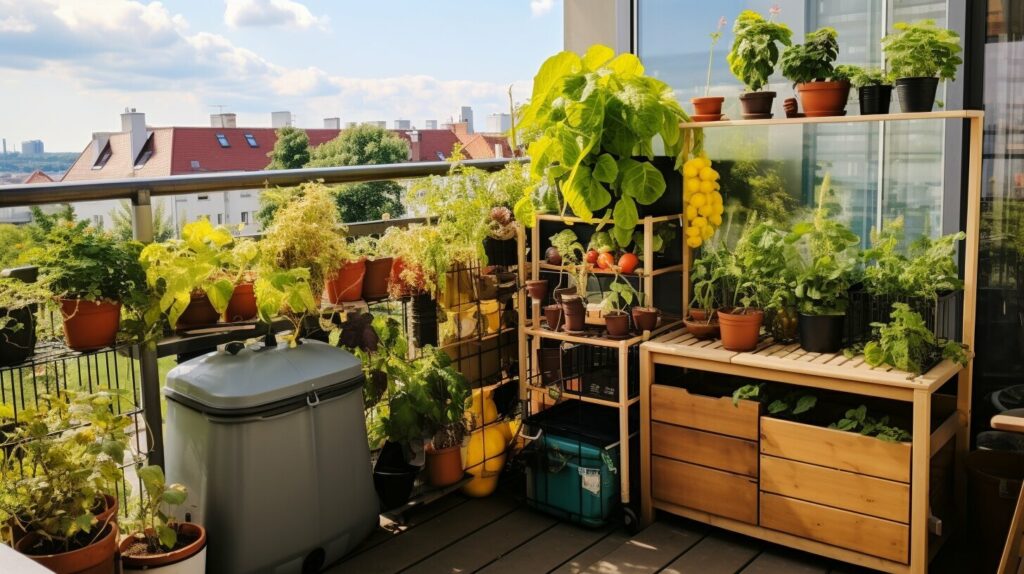
Remember to be patient and don’t expect immediate results. Depending on the method you choose, it can take several weeks or even months for your compost to be ready. With a little effort and consistency, you’ll be able to create nutrient-rich soil from your kitchen waste right in your apartment.
What to Compost in an Apartment
If you’re new to composting, you might be wondering what exactly you can compost in your apartment. The good news is that most kitchen scraps can be composted, and you don’t need a lot of space to do it.
Here’s a list of some common items you can add to your apartment compost:
- Fruit and vegetable scraps
- Coffee grounds and tea bags
- Eggshells
- Grains and starches (e.g., bread, pasta, rice)
- Nutshells
- Shredded paper and cardboard
- Leaves and yard waste (if available)
It’s important to note that you should avoid adding meat, dairy, and oily items to your apartment compost, as these can attract pests and create unpleasant odors. Stick to plant-based materials and you should be good to go!
Remember to balance your “greens” (nitrogen-rich materials like fruit and vegetable scraps) with your “browns” (carbon-rich materials like shredded paper and cardboard) to create the perfect environment for composting. A good rule of thumb is to aim for a 2:1 ratio of browns to greens.
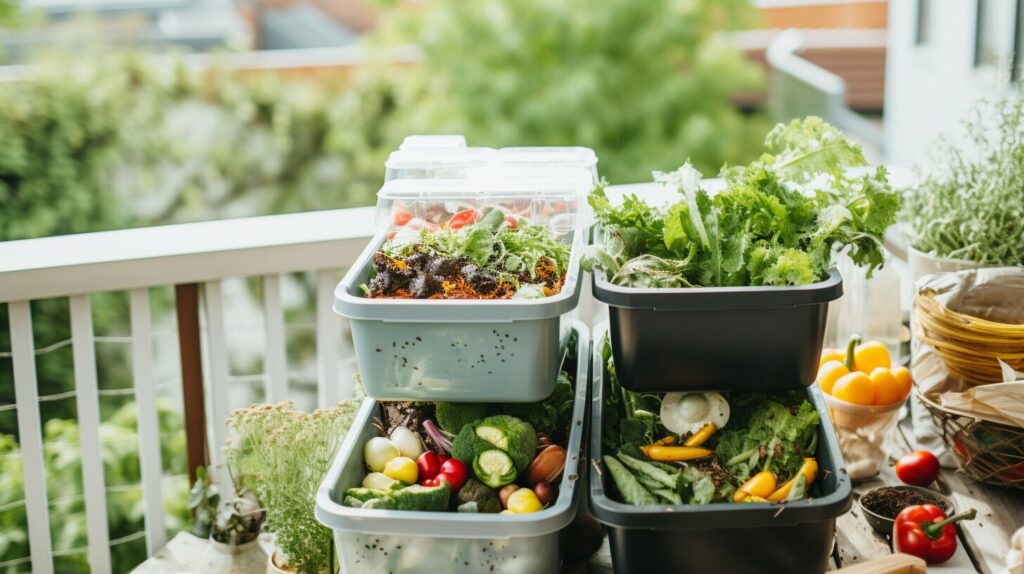
Avoiding Common Composting Mistakes in Apartments
Composting in an apartment can be a bit tricky, but with a few tips, you can avoid common mistakes and enjoy the benefits of nutrient-rich soil for your indoor plants and herbs. Here are some common composting mistakes to avoid:
- Adding meat, dairy, or oily items: These items can attract pests, emit strong odors, and cause the compost to become too wet. Stick to composting fruit and vegetable scraps, eggshells, and coffee grounds.
- Over-watering the compost: Too much moisture can lead to a smelly and slimy compost. Make sure the compost is damp but not saturated, and use a container with drainage holes to allow excess water to escape.
- Neglecting the balance of carbon and nitrogen: A compost pile needs a balance of “browns” (carbon-rich materials) and “greens” (nitrogen-rich materials) to decompose properly. Too many browns can slow down the composting process, while too many greens can cause the compost to become smelly. Aim for a 2:1 ratio of browns to greens.
By avoiding these mistakes, you can ensure that your apartment composting system is healthy, odor-free, and effective.
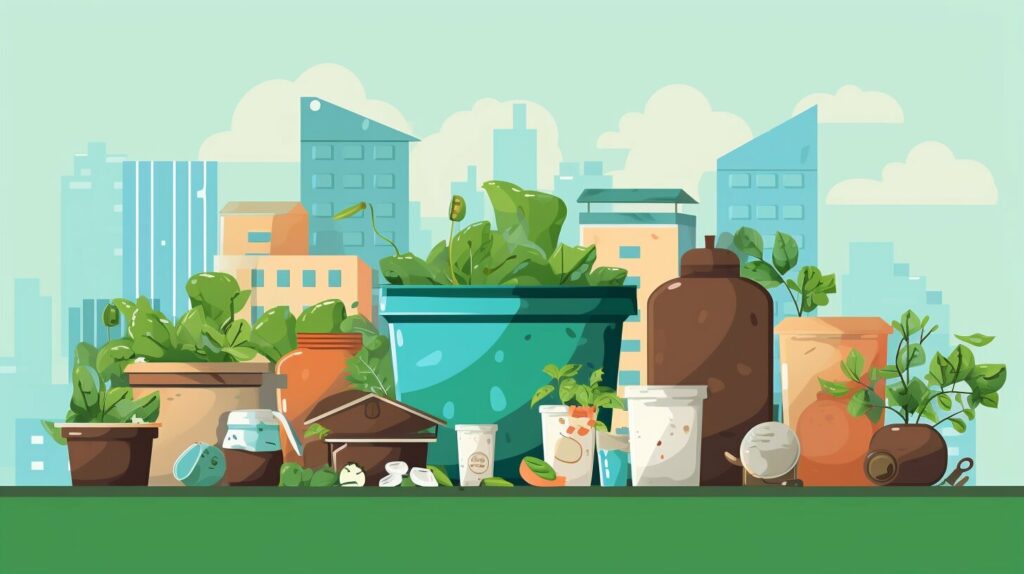
Remember that composting is a trial-and-error process, and it may take some time to find the right balance for your specific living space and lifestyle. Don’t be discouraged if your first attempts at composting don’t yield the perfect compost – keep experimenting and adjusting until you find what works for you.
Maintaining and Harvesting Your Apartment Compost
Congratulations, you have successfully set up your apartment composting system and started composting your kitchen waste! Now comes the important part of maintaining and harvesting your compost.
First, it is important to turn the compost regularly to ensure that all the materials are breaking down evenly. This can be done using a compost fork or shovel. It also helps to monitor moisture levels, as compost should be damp but not waterlogged. If it is too dry, add some water; if it is too wet, add some dry materials such as shredded paper or leaves.
If you notice any unpleasant odors, try adding more “browns” such as shredded paper or dried leaves, or using an odor control agent like activated charcoal or baking soda.
After a few months, your compost should be ready for harvesting. The finished compost will be dark and crumbly, with a pleasant earthy smell. Use a garden fork to carefully remove the top layer of unfinished materials and reveal the nutrient-rich compost beneath.
You can use your finished compost in container gardening or for indoor plants. Mix it with potting soil in a ratio of 1:3, and watch your plants thrive!
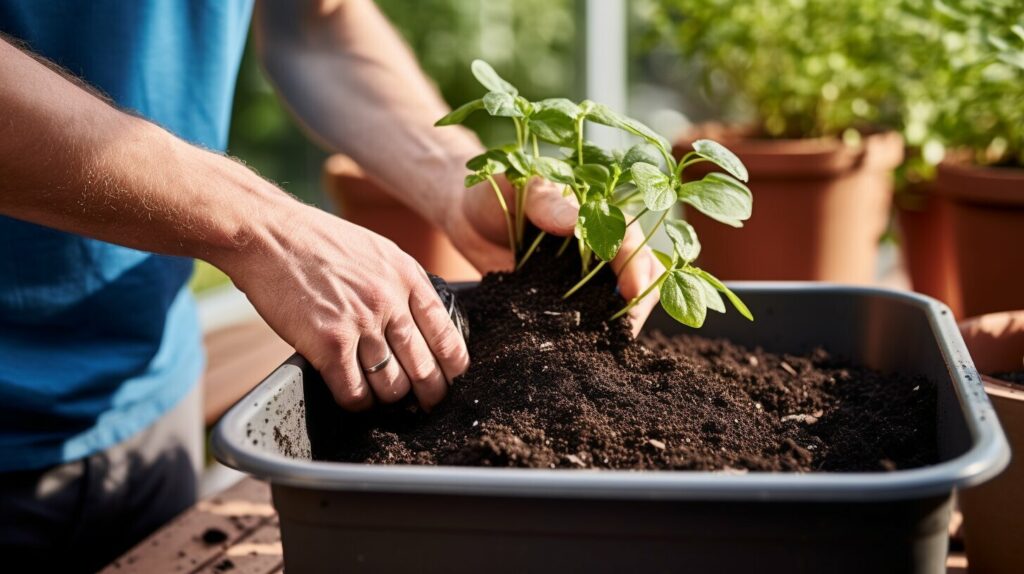
Quick Tip
If you have limited space, consider using a worm bin for composting. Worms can break down kitchen waste quickly and efficiently, and their castings make excellent fertilizer for plants.
Composting Resources for Apartment Dwellers
As you embark on your apartment composting journey, you may encounter questions or challenges that require more information or support. Thankfully, there are plenty of resources available to help you succeed in your composting efforts.
One great online resource is the Environmental Protection Agency’s guide to composting at home. This comprehensive guide covers everything from selecting the right composting method to troubleshooting common issues. It also provides tips on how to use compost in your garden or potted plants.
For a more hands-on approach, look for community composting programs in your area. These programs often provide resources such as composting bins or educational materials to help you get started. They may also offer composting workshops or events where you can connect with other compost enthusiasts and share tips and advice.
If you prefer learning from books, The Complete Compost Gardening Guide by Barbara Pleasant and Deborah L. Martin is an excellent resource for apartment dwellers. This book covers a range of composting methods and provides detailed instructions on how to set up and maintain your own composting system in small spaces.
Whether you prefer online resources, community programs, or books, there are plenty of tools available to help you succeed in your apartment composting efforts. Take advantage of these resources to transform kitchen waste into nutrient-rich soil right at home.
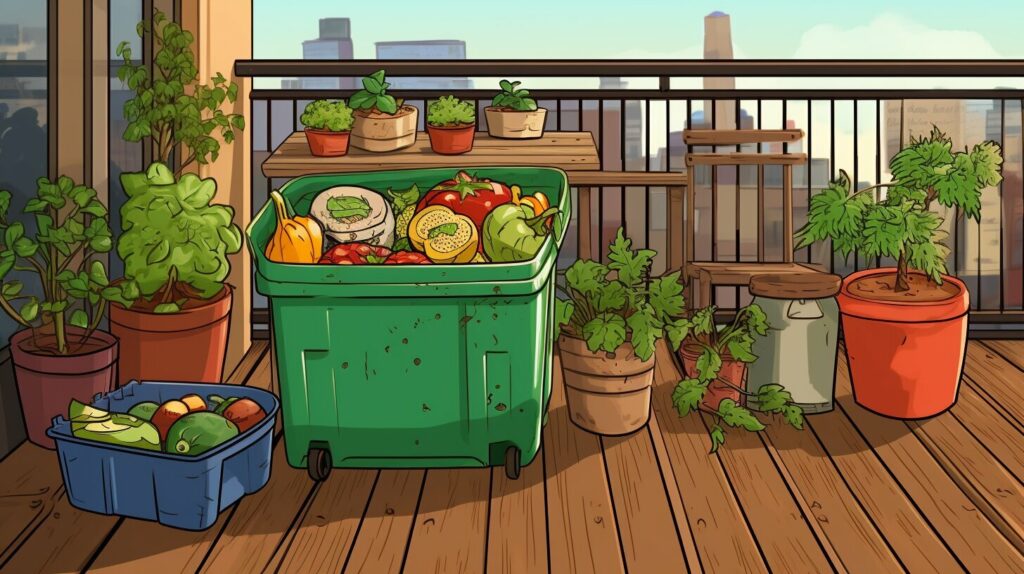
Overcoming Challenges of Apartment Composting
Composting in an apartment can be challenging, but with a little creativity, it’s definitely doable. Here are some common challenges that apartment dwellers face when composting and some solutions to help overcome them:
| Challenge | Solution |
|---|---|
| Limited Space | Consider using a small container or bin that fits under the sink or in a closet. You can also look for vertical composting systems that don’t take up much floor space. |
| Potential Odors | Try adding some dry materials like shredded newspaper or leaves to the compost to help control the smell. You can also use a compost bin with a lid or air filter to help reduce odors. |
| Lack of Outdoor Access | Look into indoor composting methods like vermicomposting or bokashi composting, which don’t require outdoor access. If you have a balcony or patio, consider using a small outdoor compost bin. |
Remember, every apartment and situation is different, so don’t be afraid to get creative and find a solution that works best for you. With a little effort, you can successfully compost in your apartment and help reduce waste in your community.
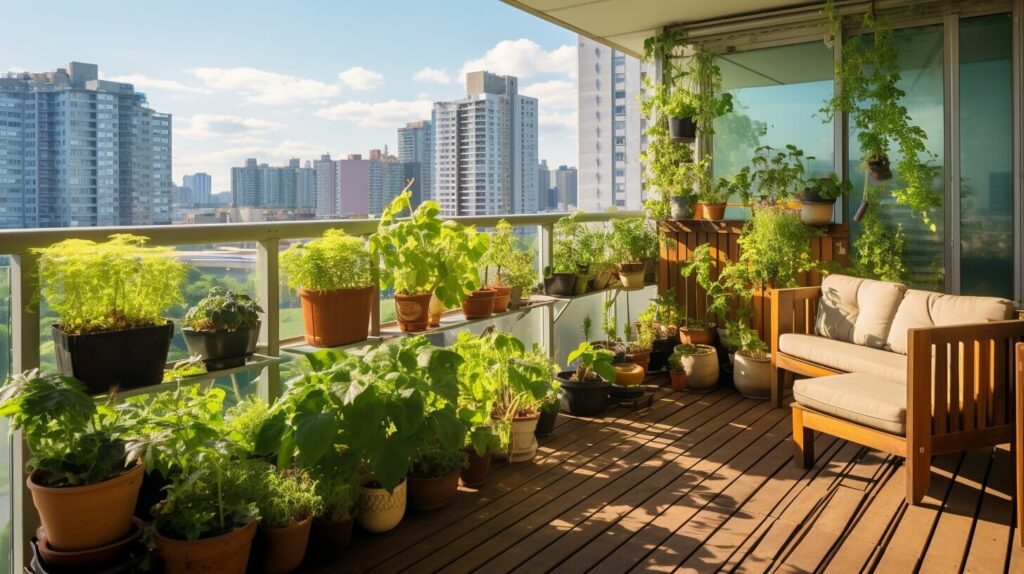
Benefits of Apartment Composting for Urban Dwellers
As an urban dweller, I know firsthand the challenges of living in a small space with limited access to green areas. Apartment composting is a game-changer for those of us who want to live sustainably and contribute to a healthier environment without sacrificing our lifestyle. Here are some specific benefits of composting in an apartment:
- Reducing landfill waste: composting diverts food scraps and other organic materials from landfills, reducing the amount of methane gas that contributes to climate change.
- Creating healthy soil for potted plants: compost provides essential nutrients that help plants grow stronger and healthier, without the need for chemical fertilizers.
- Participating in the sustainable food cycle: composting brings us closer to the natural cycle of food production, as we transform waste into valuable soil that nourishes new plants and crops.
These benefits may seem small, but they add up to a significant impact on our environment and our quality of life. By composting in our apartments, we can take a meaningful step towards a greener future.
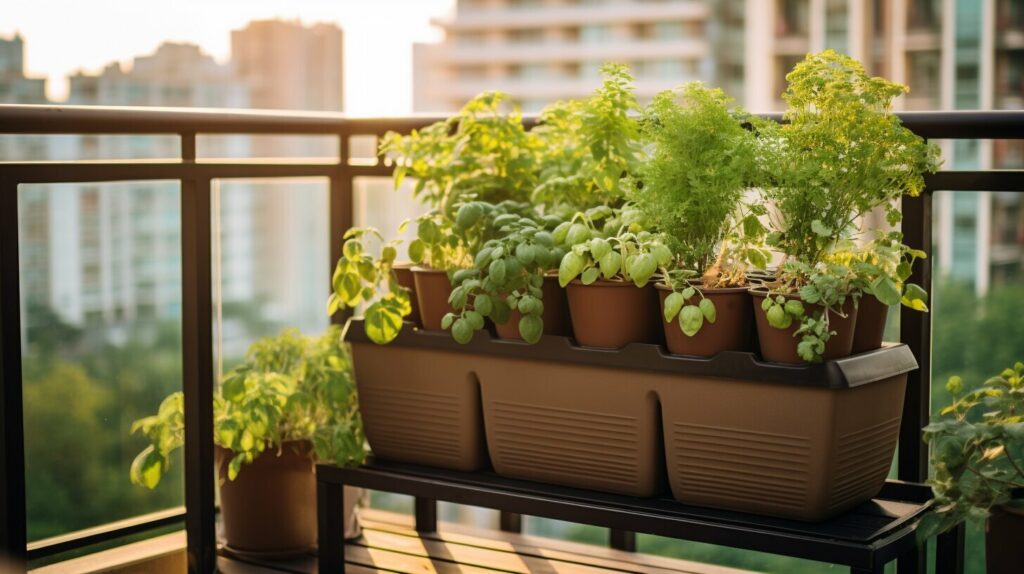
Taking Composting to the Next Level: Community Initiatives
While composting in an apartment is a great way to reduce waste and create nutrient-rich soil, it can be even more impactful when done on a larger scale. That’s where community composting initiatives come in!
These programs bring together individuals, businesses, and local organizations to divert organic waste from landfills and create high-quality compost that can be used to enrich urban soil. By participating in community composting, apartment dwellers can take their composting efforts to the next level while also connecting with like-minded individuals and strengthening their local community.
| Benefits of Community Composting |
|---|
| Diverts large amounts of organic waste from landfills, reducing greenhouse gas emissions and preventing environmental pollution. |
| Creates jobs and supports local businesses that sell or use compost and compost-based products. |
| Enriches urban soil, making it more fertile and able to support healthy plant growth. |
| Strengthens community ties and creates opportunities for education, engagement, and social impact. |
There are many different types of community composting initiatives, ranging from small-scale neighborhood composting efforts to city-wide programs that serve thousands of residents. Some popular options include shared composting bins, community garden composting, and curbside compost collection services.
To get involved in community composting, start by researching local programs and organizations that offer composting services or support. Many cities and towns have websites or directories that make it easy to find community composting opportunities. You can also ask your neighbors, local gardening groups, or environmental organizations for recommendations.
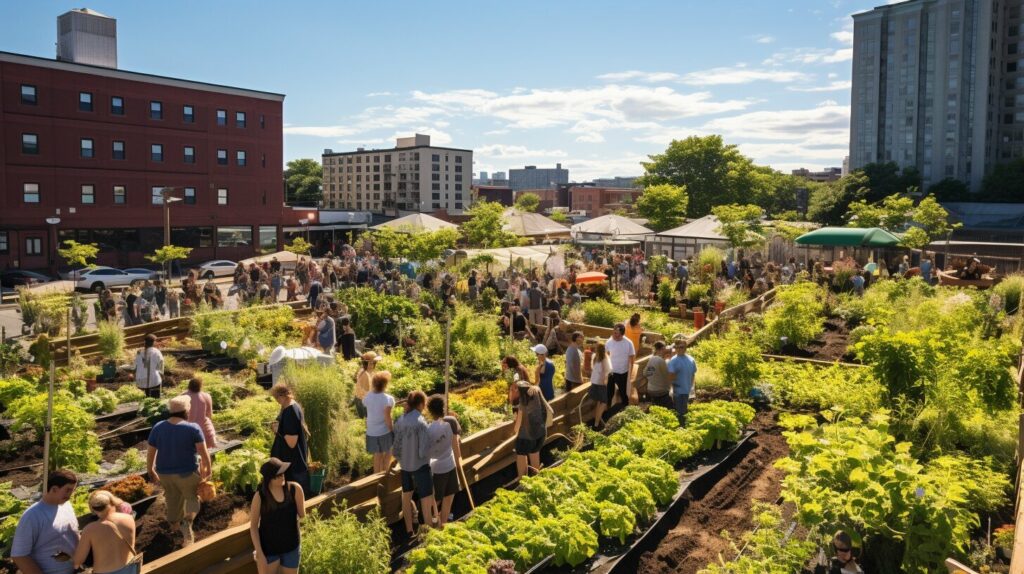
Once you find a community composting initiative that resonates with you, consider volunteering, donating, or participating in events and workshops. You can also spread the word to your friends and family, encouraging them to compost and get involved in local sustainability efforts.
By taking composting to the next level and joining a community composting initiative, apartment dwellers can make a real difference in reducing waste and promoting sustainable living in urban spaces.
Conclusion
Composting in an apartment is an easy and eco-friendly way to transform kitchen waste into nutrient-rich soil right at home. By reducing waste sent to landfills, creating nourishing soil for plants, and promoting sustainable living in a limited space, apartment composting offers a multitude of benefits for city dwellers.
Choosing the right composting method and setting up a composting system in a small living space may seem daunting at first, but with a little guidance, it can be a simple and rewarding process. By avoiding common composting mistakes and maintaining the compost pile, you can ensure a successful and sustainable composting journey.
Community composting initiatives provide an excellent opportunity to collaborate with neighbors and participate in local composting programs, diverting organic waste from landfills and creating a stronger sense of community.
If you’re ready to take the first step in apartment composting, remember to gather the right materials, choose the right method, and start small. With a little bit of effort, you can turn your kitchen scraps into a powerful soil amendment that will benefit both your indoor plants and the environment.

